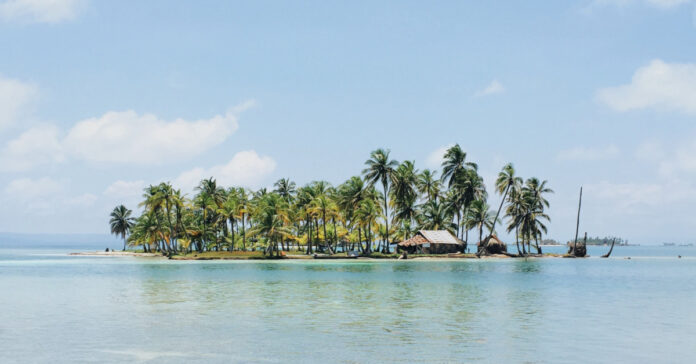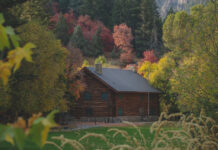This article on ZeroHedge complains about billionaires “hiding out” on tropical islands while the rest of us are stuck at home dealing with COVID-19 the problems caused by the elite.
I have three thoughts on this:
- Yep, I agree it is unfair that the elites don’t live under the same rules as the rest of us, whether they are wealthy business people or our elected officials who have their own retirement and medical systems. Rich folks take prepping to a whole other level with private jets, private security, island getaways, and houses on 50,000-acre ranches.
- This is no surprise; the rich are always been treated differently than you and I. You probably have heard of the Golden Rule: He who has the gold makes the rules. Centuries ago, the elite were royalty, nobles and rich merchants and the rest of us were serfs, servants and tradesmen. Little has changed except their titles, and we now have indoor plumbing.
- There is nothing stopping you from prepping on a smaller scale. You, too, can “hide out” from COVID-19 or other problems, but it takes a commitment and a willingness to change your lifestyle. You must decide if you are the kind of prepper who has a bugout bag or who lives on their island full time like Larry Page.
How to Establish your “Island”
Personally, I prefer to stay in America, but you can flee to foreign shores like the wealthy. It is easier now that many companies offer remote work.
I knew a women whose husband divorced her so she took her half of their money, moved to Mexico and took a long-term lease on some property. She hired a housekeeper and a gardener for $25. Not $25 per day, but $25 per week. That was 20 years ago and Mexico is not as safe today, but there are other places you can go to build your own metaphorical “island,” or at least your own lifeboat.
Check out places like Ecuador, Costa Rica, Panama, Portugal or even Italy. In some of these places, the cost of living is lower, in others they have programs that pay people to move into small towns and villages in rural area that are suffering a population drought. Research this thoroughly and talk to expats who live there. Don’t decide just because of a website or blog post.
Alternatively, you can buy yourself a 40-foot or larger sailboat and spend your days on the high seas or docked in a marina. Sail north during the summer, head south during the winter. Just keep in mind the oceans can be dangerous, you probably can’t carry guns, and there’s always the threat of foul weather. It also takes a fair amount of skill and experience for two people to do long ocean crossings. If the SHTF, you are mobile and can get out of there in a manner many cannot follow. Then you can anchor off a tropical island and the ocean will provide some of your food.
Leave the City
I think the best way to “escape” is to move out of the city now, before the SHTF. You can take several approaches: Move to a small town, move onto a homestead, or buy and recreational vehicle (RV) and head out onto the road.
I’ve addressed RV living before. It’s an option and very useful for bugging out and short-term emergencies. Because of the limited amount of storage space and dependent on fuel, I think RV living is sub-optimal for long-duration emergencies. An exception would be if you can quickly head to remote land you own where you have a cache, a water source, and some infrastructure.
There is nothing wrong with small town living, and it can be good first step out of the city and suburbs. Job opportunities in most small towns are limited, so you may need a remote job unless you work in the medical field or another area that is in demand. Jobs in small towns are often manual labor or pay little. On the plus side, it can be a good place to start a small business, the cost of living is lower than in urban areas, there should be less crime, and the local have better values.
Living on a homestead or small farm is my top recommendation because it gives you an income and helps make you more self-sufficient. Homesteading is hard work and it’s more expensive to get set up on a homestead than it is buying a house in a small town, but I think the trade-offs are worth it. If you are in a two-income family, it would be best if one person can keep their job and work remotely while the other works on the homestead. But two people with remote jobs can manage a homestead or small farm. They will just be busy.
Lifestyle Changes
Not everyone can make a change like that. If you desire to wear the latest fashions, eat sushi at least once a week, like belonging to a gym just a few minutes away, enjoy dining out regularly, and buy food for your dinner every day on the way home from work, then none of the above suggestions are for you. If you have a serious medical issue and need to live near a top trauma center or need a team of specialists, then stay in the city. Likewise, if you are scared of bugs, don’t like to get your hands dirty, and don’t want to process your own meat, don’t become a homesteader.
Whether you move out of the country or just out of the city, you need to change your attitude when you get there. Don’t be the stupid American or the judgmental city slicker. Once you arrive, talk less and listen more; you might find you can learn something from the locals. Try to tell them what they should be dong and force your morals, politics, or other foreign ideas on them, and you’ll quickly become unwelcome.
That’s another reason I recommend homesteading: It’s hard to be a pompous s ass when you are shoveling manure.








